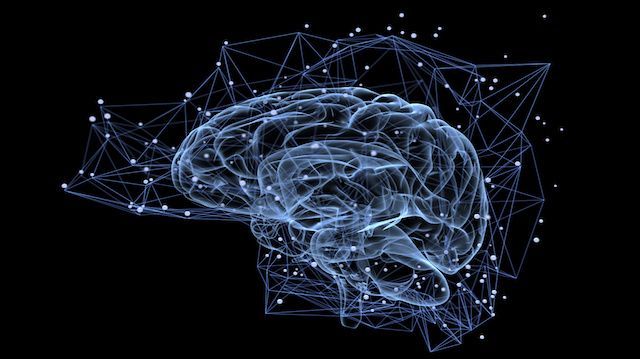
We live in a society that demands quick fixes to everything, from health to personal finances. We enjoy immediate answers to problems and are often turned off by solutions that require months or years of hard work and determination. The same goes for self-improvement, both physical and mental. We are enticed by “eight-minute abs” programs and turn to smartphone apps to help us take inventory of our daily goals.
While there is nothing wrong with pursuing a short-term “better you,” sustainable self-improvement usually comes as the result of months and years of daily effort.
If you’ve ever wished you were smarter (or happier), we have some good news for you. Studies have shown that you can actually improve your IQ and enhance your overall quality of life by doing certain simple-yet-crucial things every day. So here are six easy tips to make yourself smarter, happier and live longer.
Eat healthily
No, we aren’t suggesting that you jump on the fad-diet bandwagon. However, there are certain foods that have been scientifically proven to help improve brain health and function. These are foods that have been eaten for centuries (and some, even millennia) for their health-enhancing benefits.
By carefully choosing high-quality brain food, you can stave off memory loss and improve your thinking skills while augmenting your caliber of life . A diet rich in omega-3 fatty acids, like that of an ancient Mediterranean diet, are thought to improve cognitive abilities when consumed over long periods of time.
According to a study published in the journal Neurology, chard, kale, wild-caught salmon, organic eggs, avocados, olive oil and nuts are all “brain foods” that protect nerve cells and increase your brain’s muscle strength. Coconut oil is another crucial food rich in brain-powering monosaturated fatty acids, while vitamin D, B6 and B12 are all important brain-building nutrients.
Exercise
There are more benefits to exercise than getting that summer beach body. In fact, aesthetic manifestations are only a byproduct of the countless benefits your body receives by consistently working out.
The Alzheimer’s Association recently began recommending daily exercise as a way to avoid cognitive decline. Increasing your heart rate improves blood circulation to your brain, helping to keep your mind fresh and healthy. In fact, daily cardiovascular exercise is universally accepted by neurologists as one of the best ways to improve your quality of life.
Simply walking 20 to 30 minutes a day is enough to gain the brain-boosting and heart-pumping benefits of exercise, so don’t feel overwhelmed by the need to get an expensive gym membership. Just get outside and get moving!
Sleep
Catching your Z’s is another important factor in gaining and retaining intelligence. Sleep is known to improve your memory and help you think critically — if you get enough of it, that is.
Scientists suggest getting seven to nine hours of sleep a night is optimal for regenerating brain cells and reaping the brain-powering benefits that come from a solid sleep cycle. The process of growth that our brain undergoes during sleep, known as plasticity, controls learning, behavior and memory.
Studies have shown that missing just one night of sleep can cause the nerves in our brain to malfunction, affecting our vision, reasoning skills and memory retention. On the other hand, getting in a midday nap was shown to dramatically improve memory and thinking skills throughout the rest of the day. Think of this as your worthy justification for getting some afternoon shut-eye!
Learn a second language
Ever dream of picking up a second language? Well, studies have shown that the skill is not only useful for impressing your peers. The truth is that learning a second language greatly increases cognitive function in our brains and helps with problem-solving abilities.
According to a study conducted at Duke University, bilingual children were more able to solve critical-thinking problems than kids who spoke only one language. Learning another language has been shown to stimulate intellectual growth and enhance mental development in children.
For adults, picking up another language improves brain function by challenging it to recognize and negotiate foreign sounds and concepts. It has also been found to help prevent dementia and Alzheimer’s disease. If you think you don’t have the knack for foreign languages, learning to play an instrument has been found to have similar brain-boosting effects.
Challenge your mind (daily)
Just as our bodies become unfit if we don’t treat them with sufficient exercise, our brains can also get out of shape if they are not adequately challenged. Think of the neurons in your brain as muscles that need stimulation in order to grow stronger and more efficient. The more you “work out” your brain, the smarter it will become.
Challenging your brain can be as easy as doing a daily crossword puzzle, sudoku, memorizing a new song or researching interesting facts on the Internet. In fact, research conducted at UCLA has shown that surfing the web for information stimulates the decision-making and reasoning areas of your brain and can help improve cognitive abilities. And you thought that web surfing was a waste of time!
Maintain social networks
 Friends aren’t just for comfort, it seems. A study conducted by a university in Finland found that maintaining close social networks or a sense of community prolongs one’s life while improving cognitive brain functions.
Friends aren’t just for comfort, it seems. A study conducted by a university in Finland found that maintaining close social networks or a sense of community prolongs one’s life while improving cognitive brain functions.
Enjoying daily social interactions can not only improve our mood, it can also help stave off memory loss and reduce stress. Certain cognitive diseases, such as dementia and Alzheimer’s, are intensified by exposure to stress. Having friends and enjoying a sense of community has been shown to lower stress and improve people’s overall quality of life.
If living a long, healthy life is your goal, scientists have found that reducing inflammation can improve and prolong your quality of life. Inflammation is connected to insulin resistance, which is the underlying factor for many chronic, degenerative illnesses. A study conducted in Japan recently found that low levels of inflammation in the body is the most significant indicator for living beyond 100 years old.
Taking a daily dose of ibuprofen is one scientist-recommended way to reduce inflammation, but if you don’t like the idea of ingesting daily pharmaceuticals, the spice turmeric is a powerful inflammation reducer. Likewise, eating a healthy diet and daily exercise are the most effective ways to balance inflammation.
What do you do to challenge your brain on a daily basis? Would you take ibuprofen every day if it meant living to be 105?
—Stephanie Catudal
Stephanie Catudal is a mother, writer, hiker and outdoor enthusiast. She can often be found exploring the Ponderosa pine forests of Northern Arizona, or splashing in the cool waters of Sedona’s red rock canyons with her husband and two daughters. Steph is a holistic health enthusiast and finds strength in her personal pursuit of fitness and wellness. She has degrees in Media, Peace and Conflict studies and is passionate about building peace both abroad and within her community.
Sources:
http://www.actfl.org/advocacy/discover-languages/for-parents/benefits
http://articles.mercola.com/sites/articles/archive/2012/05/17/good-brain-health-tips.aspx
http://tip.duke.edu/node/866
http://www.telegraph.co.uk/education/educationopinion/10126883/Why-learn-a-foreign-language-Benefits-of-bilingualism.html
http://www.ncbi.nlm.nih.gov/pubmed/19155745
https://www.psychologytoday.com/blog/the-athletes-way/201401/what-is-the-best-way-improve-your-brain-power-life
http://www.ebiomedicine.com/article/S2352-3964(15)30081-5/abstract?cc=y=
http://www.cnn.com/2016/03/01/health/how-to-make-yourself-smarter-feat/index.html

